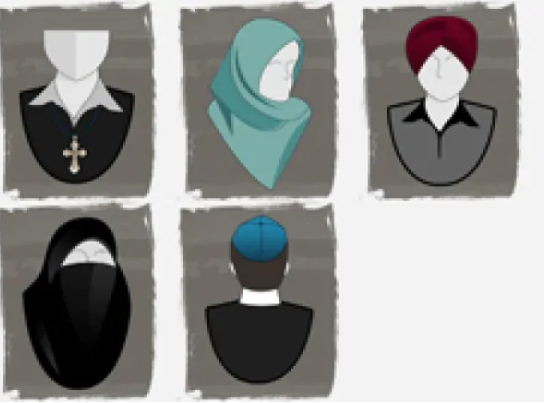
Measure, which also includes Muslim veils, applies to police officers, judges, lawyers, prison guards and teachers; opponents say it impacts religious freedoms
By AFP and TOI STAFF Today, 1:34 pm
The Quebec provincial legislature on Sunday approved a controversial bill banning new public servants from displaying religious symbols while on the job.
The ban covers Muslim veils, Jewish kippot, Sikh turbans, and crucifixes.
After a sometimes-acrimonious debate, Premier Francois Legault’s right-leaning coalition government passed Bill 21 by a vote of 73 to 35.
It includes, among others, police officers, judges, lawyers, prison guards and teachers.
The new law will only apply to new recruits, with existing employees unaffected.
Opponents to the bill say it impacts freedom of expression and religious rights.
However, the legislation included wording that preempts any challenges by invoking the so-called notwithstanding clause, or Section 33 of the Canadian Constitution, which empowers federal and provincial governments to temporarily override certain rights. A Section 33 declaration lasts five years, after which it needs to be renewed.
The ban puts Legault at odds with the multiculturalism advocated by Canadian Prime Minister Justin Trudeau.
Polls show most Quebecers support the legislation.
The Jewish community is wary.
“We are very concerned with the new Quebec government’s statements regarding a ban on religious symbols displayed by government officials and displayed in public institutions,” Harvey Levine, the Quebec regional director of B’nai Brith, said in March when the bill was introduced, suggesting that it was “at odds” with Canadian values.
The government has said the measure — combined with the removal of a cross installed in the main chamber of the national assembly in 1936 — underscored Quebec’s break with religion a half century ago, when it rejected the Catholic Church’s powerful influence in local politics.
In October 2017, Quebec’s previous Liberal government passed a bill banning face coverings for those receiving public services.